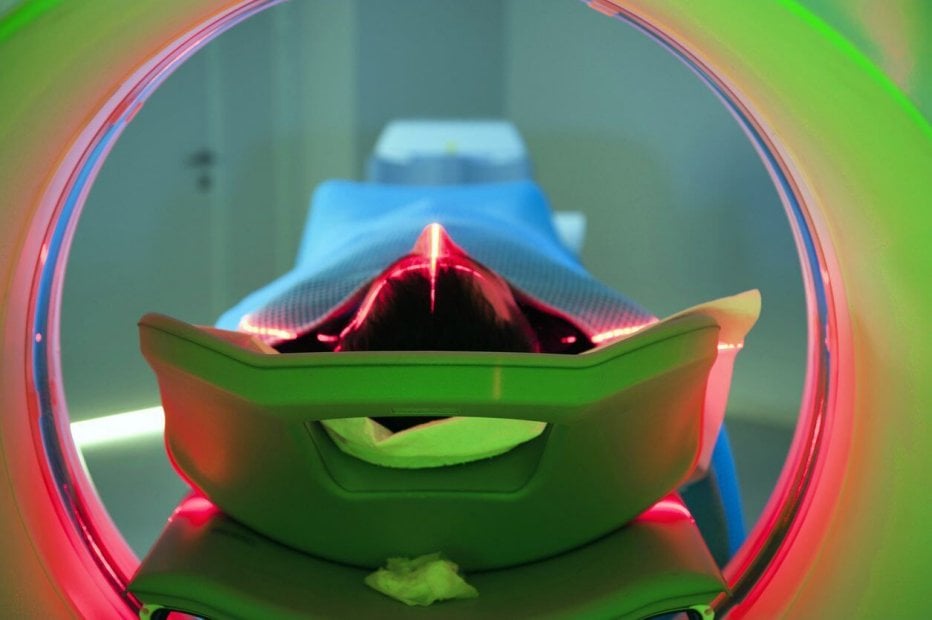Surviving Begins at Diagnosis

By: JOE SCHUMACHER COO Firefighter Cancer Support Network / Cancer Survivor / Ret. Captain, City of Fairfax (VA) Fire Department
If you have been a firefighter for more than a minute you know you face an increased risk of a cancer diagnosis due to the exposure to carcinogens you will receive during your fire service career. Even if you follow all the recommended actions during your career to reduce your risk, the unfortunate reality is you can do everything right and still get cancer.
So, what do you do if you unfortunately do receive a cancer diagnosis? The following are some things to know and consider if diagnosed with cancer.
WHEN DIAGNOSED
Take a deep breath- Yes, a cancer diagnosis may be the scariest news you will ever receive, but you need the whole picture before making any decisions. Remember, the first few days are usually foggy, so this is not the time to make decisions. Wait until you have all the facts. Make sure to have someone with you to take notes during your appointments.
Be prepared, one of the most frustrating times is after you have a medical procedure, including biopsies, and are waiting for the results. It can take as long as two weeks to get results for some tests.
Contact the Firefighter Cancer Support Network (FCSN)- The FCSN can provide you with two invaluable resources. First, we provide our Signature Toolbox designed to help guide you through your cancer battle. The FCSN’s Firefighters Guide to Cancer Survivorship Guidebook will guide you from diagnosis through hopefully remission. Second, we can connect you with another firefighter who has battled cancer. In most cases, we will pair you with a firefighter who has battled the same cancer you have been diagnosed with. It is very reassuring to be able to speak to another brother or sister firefighter who has already battled what you are fighting. FCSN mentors can provide insight about what lies ahead as well as advice for things like how they dealt with the side effects of treatments. Mentors understand the stress, fear, and anxiety you will most likely experience and are there to help you through them.
Your Physician(s)– Make sure you are comfortable with and trust your physicians. We all want a doctor who will make us feel better. However, even more important than that is a physician who will give you an honest assessment of your situation once they know the facts.
Second Opinions – It is always a good idea to get a second opinion once you have all the relevant information about your diagnosis including a treatment plan. Remember, cancer is a disease with the potential to affect the rest of your life, so you want to be comfortable with the plan you are given. Most physicians will not be offended and may even encourage you to seek a second opinion.
Research – It’s good to be informed about the disease you are battling but be cautious where you get your information. The internet is full of sites that will give you information about your disease. Unfortunately, the information you find may either be out of date or simply inaccurate. Make sure you get your information from trustworthy sources. The following websites keep their information up-to-date and accurate:
- National Institute of Health- www.nih.gov
- American Cancer Society- www.cancer.org
- Leukemia & Lymphoma Society- www.lls.org
- National Cancer Institute- www.cancer.gov
Telling Family/Friends/Fire Department- Who do you tell? The simple answer is it’s up to you. Cancer is very personal, and a different experience for everyone who gets it.
Family: This will be the hardest one. Be honest about what you know with your immediate family. If you have children, keep it simple and age-appropriate. With young kids just letting them know Dad/Mom is sick may be enough.
Friends: Communicate what you are comfortable with. Some people don’t want anyone beyond family to know unless they have a need to know. That’s OK. The information you share is completely up to you.
Fire Department: This can be complicated. If treatments will cause you to miss shifts or require a modified work assignment, then your supervisors will need to know. To avoid the rumor mill, it may be easiest to at least tell your shift/crew. Eventually, it is going to get around the department so if you tell them there will not be any speculating about what’s going on. If you may have a worker’s compensation claim, be aware there is probably a reporting time requirement that you must inform the jurisdiction after learning of your diagnosis.
No matter who you tell, be prepared for SILENCE! Many people have no idea how to respond when told someone has cancer. This is normal.
DURING TREATMENT
As much as you can, try to keep a normal daily routine. But remember….
Priorities: As firefighters, we are accustomed to putting others first and being the ones who fix a bad situation. YOU ARE THE PRIORITY NOW!!! Your only job is to focus on getting healthy and beating cancer.
Caregivers: Whether your family is your caregiver or maybe a close friend, understand that they are also experiencing all the same fears, anxiety, and stress that you are. They just don’t have to endure the physical experience you do. Be kind and appreciative of their efforts.
Attitude: Battling cancer is hard and having a positive attitude during your battle may be just as hard, but many people who have beaten cancer say having a positive, never-quit attitude helped with their battle and recovery.
Nutrition: During treatment keeping your body strong to fight is a must! Many treatment facilities have nutritionists on staff who can assist with this. Treatments can affect how foods taste. Nutritionists can help guide you to which foods usually will taste good and provide the calories needed to help you stay strong and fight cancer.
Exercise: Ask your doctors if you are allowed to exercise while being treated. If you are allowed to exercise and feel up to it, then do it. Exercising will help keep your body strong to keep fighting your cancer.
Advocate for yourself: You need to be your own advocate. If you are not comfortable with something speak up. Don’t assume your medical providers know how or what you are feeling. They can only react to what you tell them. If you are having side effects from treatment, then say something. Many times, there are medications or adjustments that can be made to make treatments easier on you.
Live your life: No one will deny that a cancer battle is difficult but continue your normal routine as much as possible. Don’t let cancer run your life! When you are up for it, attend family events, get outside and go for a walk, attend fire department functions, etc. Do things that make you happy!!!
Support: Friends and co-workers will want to help. This may be uncomfortable but let them! If they want to bring meals, mow your grass or any other tasks you or your caregiver need done allow them to do it. This allows them to feel like they are contributing to you getting better.
AFTER TREATMENT
Cancer is a journey that doesn’t end when treatments do. You will still have to do regular follow-ups with your medical team which may last for a year or likely longer. Some of the things your medical team will schedule include the following:
- CT scans, MRI or PET scans
- Blood work
- Monthly, quarterly, or yearly physical exams
No one wants to hear their cancer has returned but unfortunately, it does happen. The key to surviving a reoccurrence is early detection. Following your medical team’s post-treatment plan will ensure that if anything does return it is caught early which ensures the best chance for a good outcome.
National Firefighter Registry on Cancer (NFR): Register with the NFR. The data collected will help researchers better understand who and why firefighters get cancer at a higher rate than the public. They can then develop mitigation strategies and tactics to help reduce the chances of future generations of firefighters getting cancer. https://nfr.cdc.gov
If you have any questions concerning your battle that are not covered here reach out to the Firefighter Cancer Support Network at:
Podcast
Contests & Promotions













